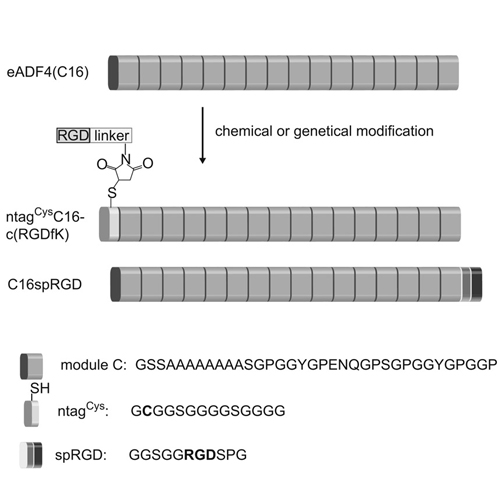Cell adhesion and proliferation on RGD-modified recombinant spider silk proteins
22-Jun-2012
Biomaterials, 2012, http://dx.doi.org/10.1016/j.biomaterials.2012.05.069, Volume 33, Issue 28, Pages 6650–6659 published on 22.06.2012
Due to the biocompatibility and biodegradability as well as the mechanical properties of the fibers, spider silk has become an attractive material for researchers regarding biomedical applications. In this study, the engineered recombinant spider silk protein eADF4(C16) was modified with the integrin recognition sequence RGD by a genetic (fusing the amino acid sequence GRGDSPG) as well as a chemical approach (using the cyclic peptide c(RGDfK)). Both modified silk proteins were processed into films, and thereafter characterized concerning secondary structure, water contact angle and surface roughness. No influence of the RGD-modifications on any of these film properties could be detected. However, attachment and proliferation of BALB/3T3 mouse fibroblasts were significantly improved on films made of the RGD-modified silk proteins. Interestingly, the genetically created hybrid protein (with a linear RGD sequence) showed similar or slightly better cell adhesion properties as the silk protein chemically modified with the cyclic RGD peptide.











